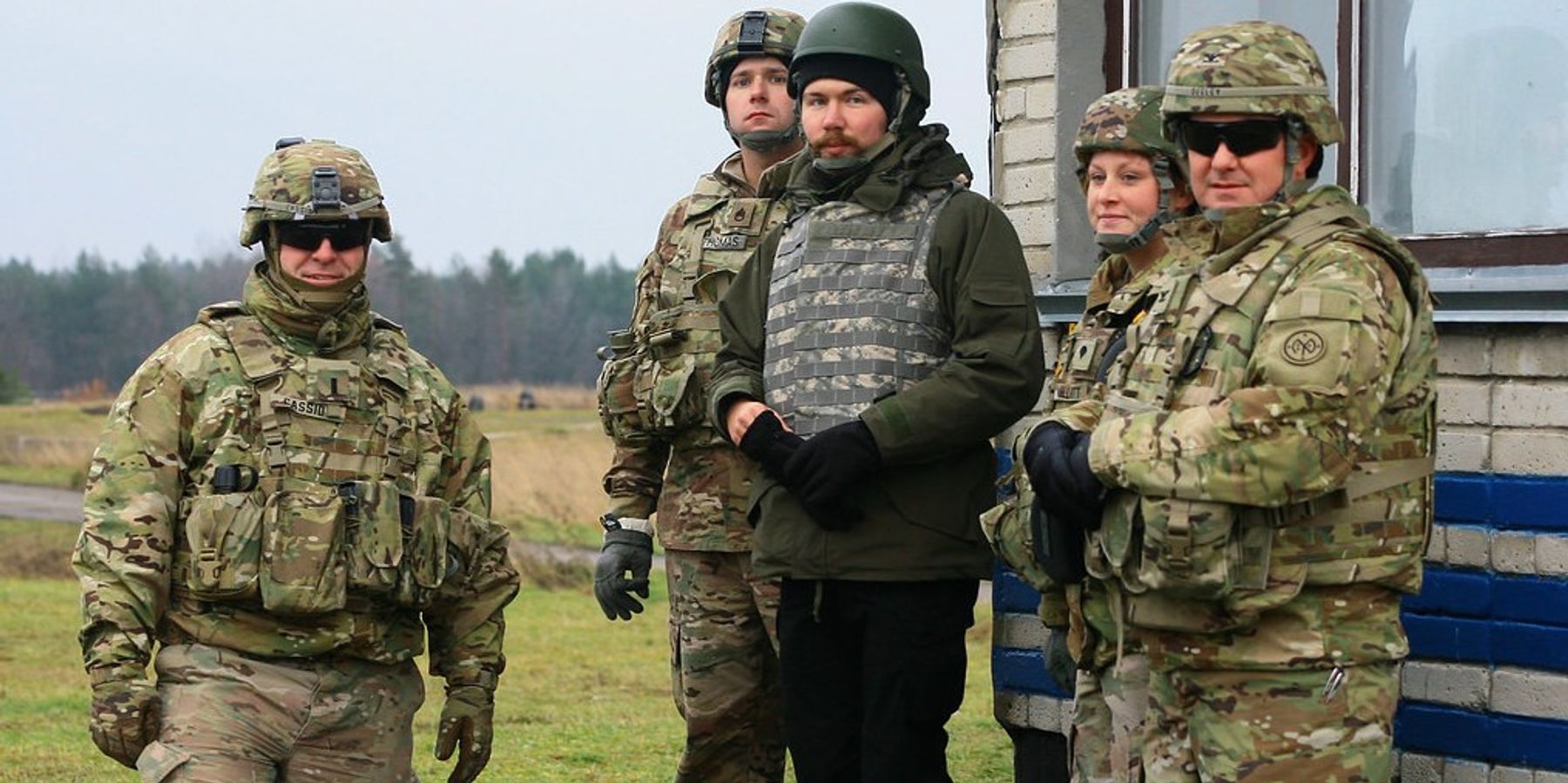U.S. policy towards the war in Ukraine is to escalate rather than work to calm tensions, if activity on Capitol Hill is any indication.
In late May, Politico reported that the Biden administration had quietly given Ukraine the authority to conduct limited strikes in Russia using U.S. weapons. It was a stunning shift in administration policy that underscored the dire battlefield conditions in Kyiv and risked a serious escalation in the war, according to the administration’s own thinking.
In response to the news, lawmakers have introduced two competing amendments to this year’s National Defense Authorization Act. One, introduced by Rep. Thomas Kean (R-N.J) “[s]tates that it is the policy of the United States to lift restrictions on Ukraine’s ability to strike legitimate targets inside Russia with U.S.-provided weapons.”
What exactly “legitimate targets” means is not specified in the legislative text. According to last week’s reporting, the White House had only greenlit strikes near the area of Kharkiv, in the country’s northeast.
One of the co-sponsors of the amendment, Rep. Jake Auchinchloss (D-Mass.), recently told Semafor that he wanted the administration to give Ukraine even broader discretion.
“They should authorize all weapons to be used to strike any site within Russia that has military application,” Auchinchloss said. “That means energy infrastructure, troops, staging sites, industrial sites.” Others who praised the decision lamented that the Biden administration had not arrived at that conclusion earlier in the war.
That amendment has 21 other cosponsors — more than all but two of the 1,316 amendments introduced — including 13 Democrats and eight Republicans.
On the other side, Rep. Paul Gosar (R-Ariz.) offered an amendment that would prohibit the use of weapons provided to Ukraine for the purpose of striking targets within Russian territory. As of the time of publication, that amendment has no co-sponsors.
A number of Republican members did criticize the administration’s decision, with Rep. Matt Gaetz (R-Fla.) saying that the policy against striking in Russia had “been at least one reasonable attempt to limit escalation of hostilities.”
Experts say that allowing Ukraine to strike inside Russia will do little to alter the current battlefield situation. “This decision does nothing to redress the two main reasons why Ukraine is on a trajectory of defeat: crippling manpower and firepower deficits,” Mark Episkopos, Eurasia research fellow at the Quincy Institute, tells RS. “It has been a persistent battlefield reality that Ukraine lacks the resources to conduct cross-border strikes with the scale and frequency required to impose decisive costs on Moscow.”
In addition, Episkopos warns that it could lead to more serious escalation between the U.S. and Russia.
“Ukraine has been striking targets inside Russian territory using its own arsenal for the better part of this war. Doing this with American-provided weapons —and, potentially, targeting information provided by Western intelligence — further blurs the lines between support and active participation, complicating the White House's insistence that the U.S. is not a party to this conflict,” he says. “This raising of the stakes is accompanied by heightened risks of Russian escalation, whether in or outside Ukraine, for no discernable strategic benefit.”
The long list of proposed NDAA amendments contains other attempts to constrain Biden’s support for the Ukrainian war effort. It includes a renewed effort from Rep. Warren Davidson (R-Ohio) to require that the administration provide Congress with a strategy for U.S. involvement in the war before lawmakers approve any further funding, and another try from a bipartisan group of members to prohibit the transfer of cluster munitions. The attempt to ban cluster munitions has already failed in a handful of floor votes, and was recently defeated in the House Armed Services Committee markup of the NDAA by a vote of 48-10.
It is unclear which, if any, of these amendments will receive a vote on the House floor. The Rules committee is expected to meet on June 11 to mark-up the legislation.
- Droning Russia’s nuke radars is the dumbest thing Ukraine can do ›
- Diplomacy Watch: Kyiv can use US weapons to strike inside Russia ›
- Bombs and blurred lines in a big battleground state | Responsible Statecraft ›
















